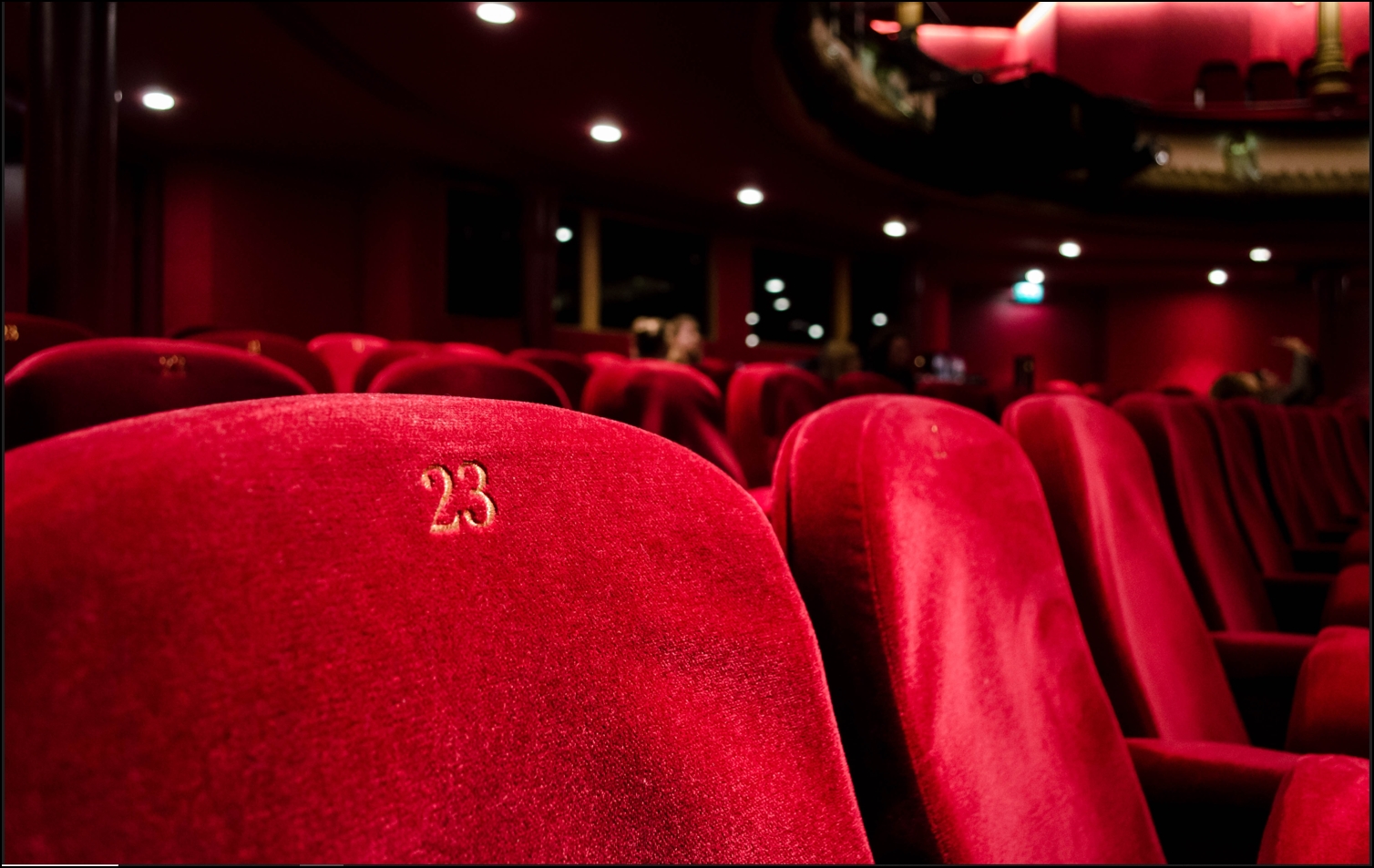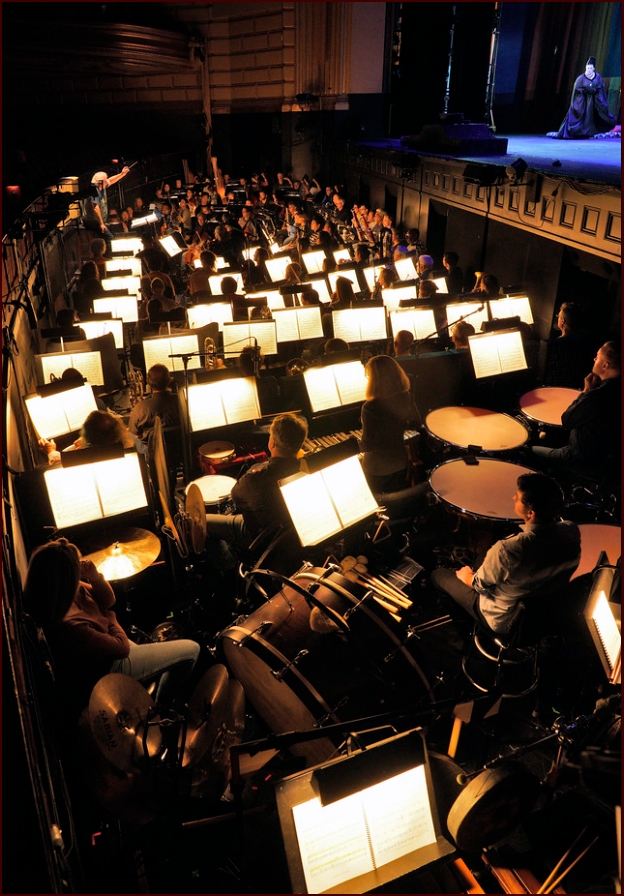By Jeff Dunn
Who knows what evil lurks in the hearts of nurses? The Empress doesn’t know, because she doesn’t have a shadow. But in the course of Richard Strauss’s opera Die Frau ohne Schatten, she develops empathy for other human beings while seeing her nurse shamelessly manipulate one of them, and gets a shadow as a reward.
Start with this basic plot, but then add 20+ more characters, 10 scene changes, nearly 100 musicians, 78 choristers, 7 dancers, and an elusive concoction of spirit world, symbolism, allegory, and late romantic melancholy, and you might be headed for trouble.
…Top honors are richly deserved for Sir Donald Runnicles’ conducting of the Opera Orchestra …
Fortunately, astute casting, terrific orchestral playing, and occasionally gorgeous sets by David Hockney allow Strauss’s nearly 3 hours of often inspired music to shine. Reactions may vary, however, with respect to Hugo von Hofmannsthal’s libretto, with its interpretive challenges for puzzle-solvers and bewilderment for realists.
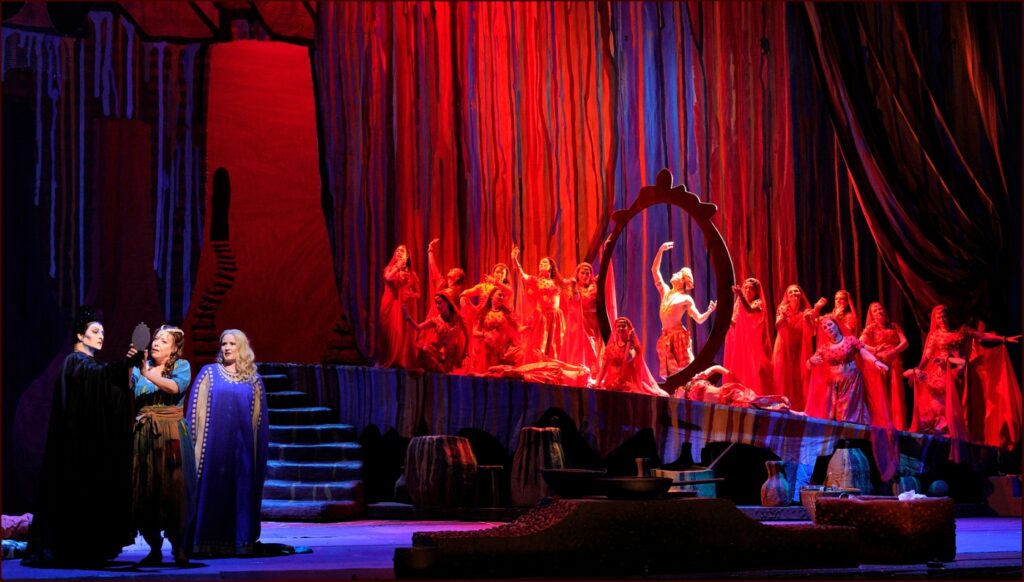
Photo: Cory Weaver/San Francisco Opera.
Top honors are richly deserved for Sir Donald Runnicles’ conducting of the Opera Orchestra through thundering climaxes and deftly coordinating his army on and offstage. Nina Stemme as the Dyer’s wife powerfully matched the model proposed by Hofmannstahl himself. That is, Strauss’s wife Pauline: “Earthborn, impetuous yet unselfconfident and beautiful.” Linda Watson’s Nurse, purportedly a servant and aide to the Empress, revealed well her character’s true nature as a Mephistophelean Nurse Semi-Ratched trying to wheedle Stemme out of her shadow.
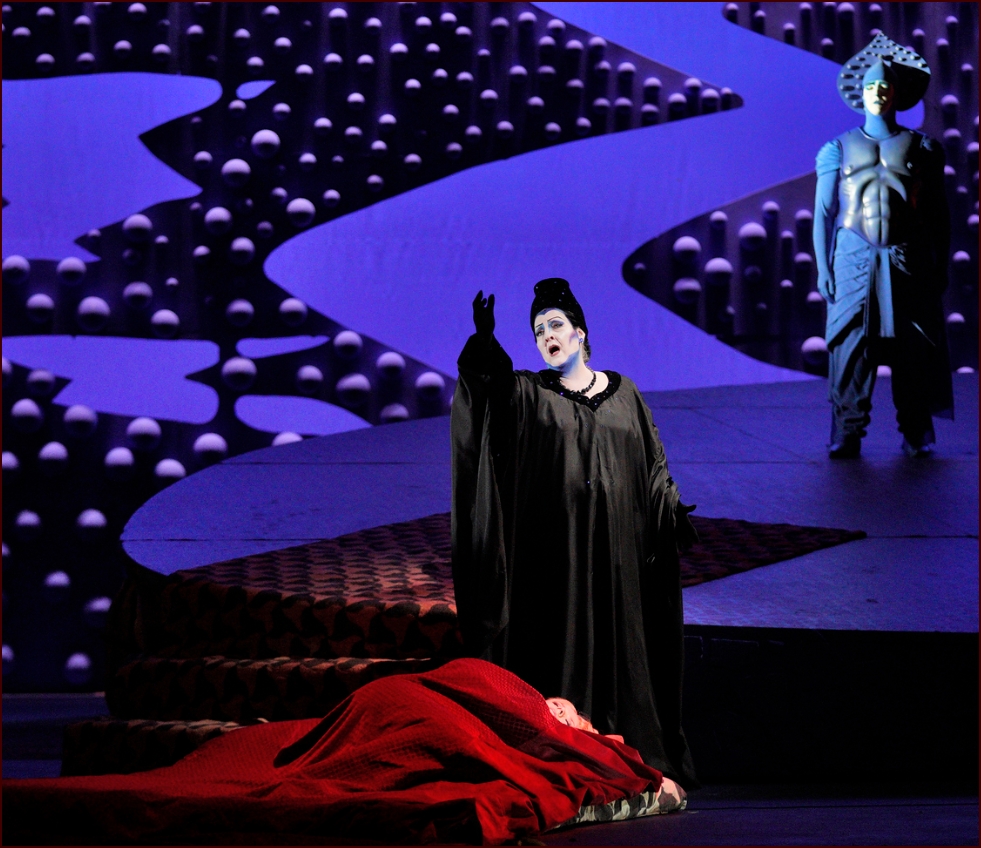
Photo: Cory Weaver/San Francisco Opera.
The hapless Dyer Barak was resonantly characterized by bass-baritone Johan Reuter. Camilla Nylund as the Empress aptly evolved her character and voice from a transparent gazelle to a caring human being. David Butt Philip as the Emperor, Stefan Egerstrom as the Spirit Messenger, and the rest of the cast did fine work handling the virtuoso lines Strauss gave to large and small parts alike.
Hockney’s backdrops ranged from an exquisitely beautiful color-changing evocation of hills, rivers and flowers of the opening scene on the Emperor’s roof to Barak’s home and dye shop with a wide range of vertical paint-can-like streaks of earth tones. Another striking set was the door to Keikobad’s temple in Act 3. At the end of Act 2, a Götterdämmerung-like event in the score was weakly characterized on stage. An earthquake is supposed to break the walls and a flood roar through them while Barak and his wife sink into the earth. No flood, just some hangings lifted.
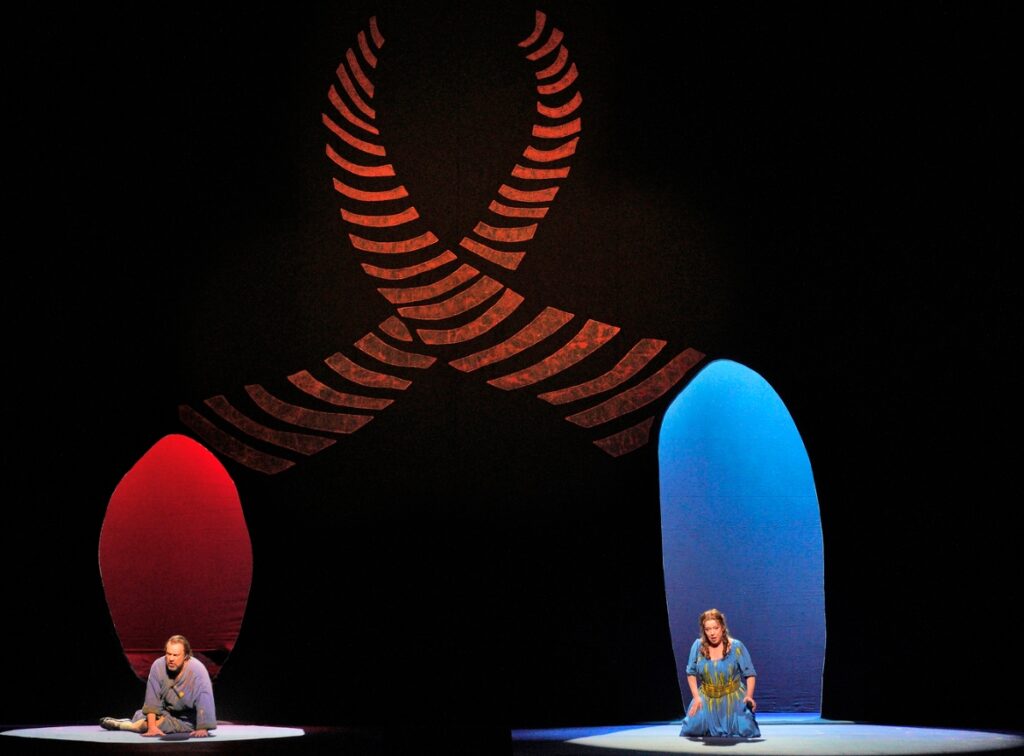
The beginning of Act 3 had the couple separated in large tear-drop holes in a backdrop rather than the “subterranean vault divided by a thick wall” called for in the libretto. Some dramatic orchestral interludes where characters hang about on stage with little or nothing to do would have benefitted by projections, but Hockney’s design dates from 1992, when projection technologies were primitive by today’s standards.
Google the symbolism of shadows, and you’ll get a number of meanings as large as the forces bringing Die Frau back to life here. Hofmannstahl meant it to mean the ability to bear children, which prompted one recent critic to declare that Die Frau “is an opera that ultimately condemns its womenfolk to lives of obeisant child-bearing.” While the conclusion of this massive undertaking must be taken in historical context of a Europe depopulated by World War One and the flu in a strongly patriarchal society, who knows for sure what will lurk in the hearts of viewers who experience this opera today?
-30-
 Jeff Dunn is ASR’s Classical Music Section Editor. A retired educator and project manager, he’s been writing music and theater reviews for Bay Area and national journals since 1995. He is a member of the San Francisco Bay Area Theatre Critics Circle and the National Association of Composers, USA. His musical Castle Happy (co-author John Freed), about Marion Davies and W.R. Hearst, received a festival production at the Altarena Theater in 2017. His opera Finding Medusa, with librettist Madeline Puccioni, was completed in January 2023. Jeff has won prizes for his photography, and is also a judge for the Northern California Council of Camera Clubs.
Jeff Dunn is ASR’s Classical Music Section Editor. A retired educator and project manager, he’s been writing music and theater reviews for Bay Area and national journals since 1995. He is a member of the San Francisco Bay Area Theatre Critics Circle and the National Association of Composers, USA. His musical Castle Happy (co-author John Freed), about Marion Davies and W.R. Hearst, received a festival production at the Altarena Theater in 2017. His opera Finding Medusa, with librettist Madeline Puccioni, was completed in January 2023. Jeff has won prizes for his photography, and is also a judge for the Northern California Council of Camera Clubs.
| Production | Die Frau ohne Schatten |
|---|---|
| Directed by | Roy Rallo |
| Producing Company | San Francisco Opera |
| Production Dates | Thru June 28th |
| Production Address | 301 Van Ness Ave, SF, CA |
| Website | www.sfopera.com |
| Telephone | (415) 392-4400 |
| Tickets | $26-$422 |
| Reviewer Score | Max in each category is 5/5 |
| Overall | 4/5 |
| Performance | 4.5/5 |
| Libretto | 2.5/5 |
| Stagecraft | 3.5/5 |
| Aisle Seat Review PICK? | ---- |
